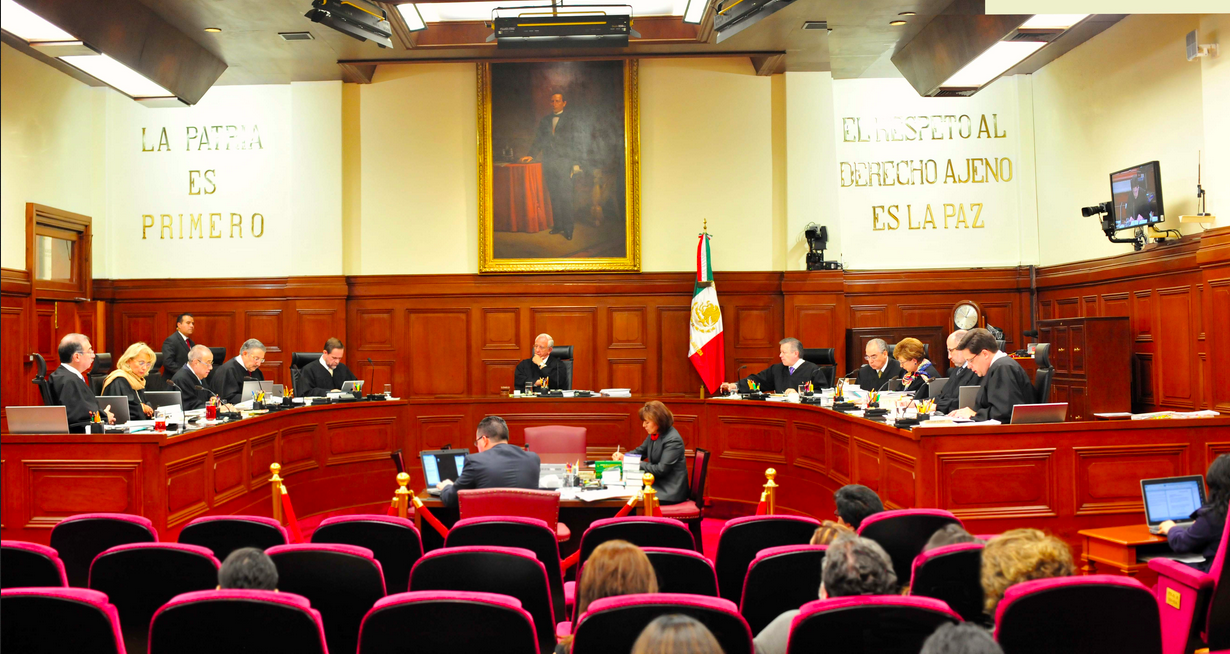
Posted 09/17/2024 08:18 | Edited 09/17/2024 08:21
Starting in 2025, all judges of the Supreme Court of Mexico will be elected by popular vote, an unprecedented measure in the world. This is the main change in a judicial reform approved under the initiative of the government of Andrés Manuel López Obrador. The measure, which profoundly changes the structure of the judiciary, has generated intense debate and mobilized protesters, in addition to provoking negative reactions in the financial markets. The reform, defended as an effort to combat corruption, has been strongly criticized by representatives of the opposition, international organizations and investors.
With 86 votes in favor and 41 against, the leftist ruling party Morena, led by President Obrador, obtained the two-thirds necessary to approve the constitutional reform. The session, marked by tension and interruptions, ended with the government’s victory.
López Obrador proposed the reform in the context of a confrontation with the Judiciary, which blocked reforms that expanded the State’s participation in the energy sector and placed public security under military control. In a press conference in February 2024, the president expressed his view that the Mexican Judiciary was “taken over” by private interests and organized crime, defending the need for a profound reform as a fundamental step to reestablish justice in the country.
“What worries those who oppose this reform the most is that they will lose their privileges, because the judiciary is at the service of the powerful (…), of white-collar crime,” declared López Obrador. “The judiciary is at the service of a voracious minority. Only with the participation of the people, with democracy, will we be able to move forward,” he stated. He pointed out that the process would not be quick, but insisted that the changes needed to begin as soon as possible.
With the strategy dubbed ‘Plan C’, Obrador and Morena sought to win not only the presidency, but also a qualified majority in Congress in the June 2024 elections. The electorate responded positively, giving Morena 73% of the seats in the Chamber of Deputies, guaranteeing what was needed to approve constitutional amendments without the need for negotiations with the opposition.
In the Senate, Morena and its allies won 83 seats, just three less than needed to fully approve constitutional reforms. Given this scenario, judicial reform once again became the government’s main agenda, generating mixed reactions.
Popular elections for the Judiciary
The main point of the reform is the popular election of judges and magistrates, including the Supreme Court justices. More than 6,500 judicial positions will be chosen by direct vote, which, according to the president, will ensure that the justice system serves the people and not the interests of elites and criminals. The reform also reduces the number of Supreme Court justices from 11 to 9, limits their terms to 12 years, and reduces the minimum experience to hold the position from 10 to 5 years.
Until then, members of the Supreme Court were appointed by the president and approved by the Senate, while the Federal Council of the Judiciary appointed judges and appellate judges after examinations and competitions based on merit. This system is similar to that of the United States and Brazil, which concentrate decision-making in the hands of the executive branch, with little involvement from the legislature. In Italy, for example, one third of them are appointed by parliament, one third by the president of the country and one third by the higher courts.
Although in the United States some states elect local judges, the most similar case to Mexico is that of Bolivia, where the ministers of the superior courts are elected by popular vote. First instance judges, however, are appointed by a council of the Judiciary.
In the last election in Bolivia, null and blank votes reached 66%, which undermined the increase in legitimacy and, therefore, the independence of the judicial authorities. The annulment of votes was due to the high level of ignorance of the candidates and also to calls from the opposition to boycott the popular choice. Today, these same opponents are united in the opposite direction, they want everyone to vote for their candidates.
Change in the judges’ oversight
Another measure includes the creation of a Court of Judicial Discipline, also composed of elected judges, which would be responsible for monitoring the conduct of judicial professionals. It also eliminates the lifetime pension of ministers and prohibits their salaries from being higher than that of the president, a measure that already exists but has not been implemented.
The idea of “faceless” or anonymous judges, a legal figure included in the reform to protect the identity of magistrates in organized crime cases, has also drawn criticism from human rights organizations, who see the measure as a violation of international justice standards because it prevents the recognition of the suitability and competence of judges. In Colombia, the measure was adopted in the late 1980s to confront a terrorist escalation in drug trafficking, but its effectiveness in protecting judges and ensuring justice has not been definitive.
Economic impact and international repercussions
The initiative in Mexico has been criticized by opponents and analysts who warn of the risks of political interference and the weakening of judicial independence. According to Senator Alejandro Moreno, leader of the local right-wing opposition PRI party, the approval of the reform was a “blow against the rule of law,” and he accused the government of using “unimaginable pressure and coercion” to ensure victory.
The reform has raised concerns among Mexico’s main trading partners, including the United States and Canada, who have expressed concern that the new judicial structure could weaken the implementation of the trade pact between the three countries. In addition, international agencies such as the UN and Human Rights Watch have issued warnings about the possibility of executive interference in the elections of judges.
Financial markets have also reacted negatively. Since the victory of the Morena party in the June presidential elections, the Mexican peso has depreciated by around 17%. The judicial reform has deepened this instability, generating fear among investors that the Mexican judiciary will no longer function as a counterweight to the executive, affecting legal predictability in the country.
Claudia Sheinbaum’s support and the challenge of implementation
President-elect Claudia Sheinbaum, who takes office in October, has already declared her support for the reform, which indicates that the new structure will be implemented. However, Sheinbaum will face the challenge of dealing with the negative repercussions both domestically and abroad. In addition to international criticism, she will need to manage strikes by judicial employees and growing discontent among the opposition.
Judicial workers, students and ordinary citizens have organized protests and strikes, criticizing the reform as a threat to Mexico’s young democracy and justice system.
On September 4, the reform was approved by the Chamber of Deputies in a session held in an alternative venue, due to the blockade of the San Lázaro Legislative Palace by protesters. The bill now goes to the Senate, where the government believes it has the necessary votes for final approval.
For Obrador, judicial reform is essential to “purify public life” and combat corruption, which, according to him, has weakened Mexico for decades.
Source: vermelho.org.br

